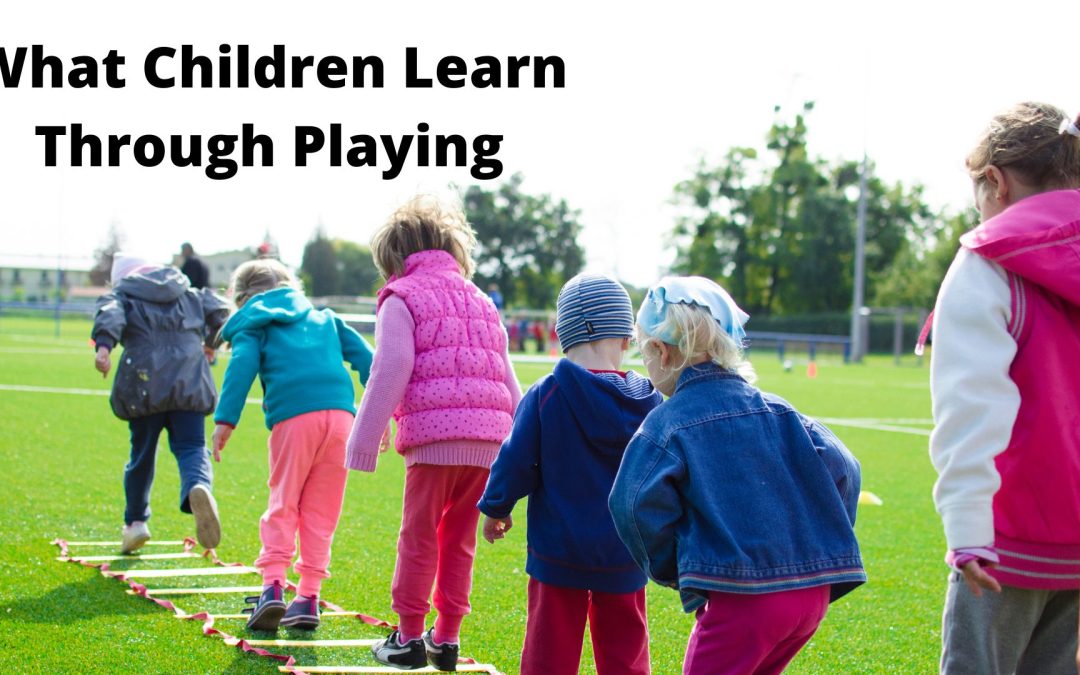When you say to your child, “Okay, go ahead and play now” you may be thinking it’s wasted time for learning. But as humans, we are always learning, even in the smallest or most insignificant tasks. Children are no different, and soak up information constantly, so even if they are playing, they are learning. You can help them gain better or more useful learning skills depending on the activity.
Communication
One of the biggest learning opportunities for children when playing is communication. This goes for both listening and talking skills, as children will learn appropriate language use. The more they’re exposed to talking and vocabulary, the more children will utilize these words and extra vocab in everyday life. Children will talk whether they are by themselves or in groups, so even if they are playing by themselves, they will still learn language and narrative skills. Building communication skills is vital for your child’s development, no matter their age. Being able to freely communicate with their classmates and friends will build up their confidence as well as their language skills.
Cognition
Pretend playing helps children build excellent cognitive skills. This type of playing helps children form higher levels of interaction with others. If children don’t have adequate amounts of pretend play, it can actually negatively affect other areas of their learning, such as problem solving, social skills and academic learning. Playing with both their parents and friends can have varying differences in children’s cognitive development. Children whose parents played with them while growing up had increased cognitive abilities and greater levels of imagination. Children who played with their parents also had positive mental health, stronger friendships, and a stronger family bond than children who didn’t have the opportunity for parental play.
Relationships
It may seem obvious that pretend play would also benefit a child’s relationships, both in the present and in the future. Interacting with their parents and friends shows them positive interactions, and also gains the necessary communication skills to build on those friendships. There is oftentimes an increase in the amount and quality of a child’s friendships when they build upon those playing skills while growing up.
Social and communication skills go hand in hand while children are growing up and developing. You can’t have one without the other, and each can help or hinder a child in their development in either category. Knowing how important play can be for a child’s learning can make it much easier to increase the time they get to play and build those relationships.
Katie Kyzivat

